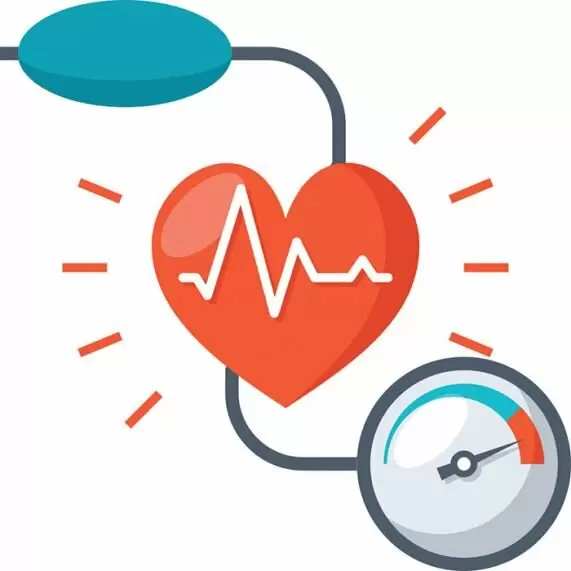How to lower blood pressure without medication?
19 May 2020


19 May 2020


If you have high blood pressure, not only medication can help, but also simple good habits (https://tinyurl.com/ycec4der).
To normalize blood pressure, eat lots of vegetables, fruits, whole grain products. Choose foods low in fat and cholesterol. The hypertension diet (DASH) includes lean meats, poultry, fish, and nuts. Avoid sugary drinks, red meat, sweets.
If you lose a couple of pounds, it will benefit your blood pressure. It is also important to monitor the waist circumference. It is desirable for women to have a waist less than 88 cm, and for men - 101 cm.
Try to move actively for at least 150 minutes a week. Pay attention to aerobic exercise, which makes the heart and lungs work. Try brisk walking, cycling, swimming or dancing.
Excessive salt intake can raise blood pressure. Your goal is no more than 1.5 grams per day. Please note that you get salt not only when you salt homemade food, but also from ready-made products - sausages, bread, etc.
Potassium deficiency can lead to high blood pressure. You need to get 3-3.5 grams of potassium a day. The average banana, for example, contains 420 milligrams. Baked potatoes with skin - 900 milligrams. There is also a lot of potassium in spinach, beans, tomatoes, oranges, yogurt.
Stress can have a bad effect on blood pressure. Try meditation, yoga, deep breathing.
Alcohol can increase blood pressure and disrupt antihypertensive drugs. It is desirable for women to eat no more than one serving a day, and for men - two. A serving of alcohol is 0.3 beer or 150 grams of wine.
Smoking increases the risk of hypertension, heart attack and stroke. This bad habit also reduces the effectiveness of some blood pressure medications.
If you regularly drink coffee and other caffeinated beverages, it does not affect your blood pressure much. But if you use them infrequently, caffeine can cause a short-term increase in blood pressure. Discuss coffee with your doctor.
When you sleep, your blood pressure drops. Getting enough sleep is an important factor in cardiovascular health. Most people need at least 7 hours of sleep. A good night's sleep is when you fall asleep for 30 minutes, wake up no more than once in the middle of the night, and fall asleep quickly again.
Check from time to time that the pressure is normal. High blood pressure often does not cause any symptoms. Regular measurements will show whether diet, exercise and other good habits are effective in your case.
Pay attention to the treatment of comorbidities. Many people with diabetes often have high blood pressure. Hypertension can also be associated with high cholesterol, apnea, and thyroid dysfunction.
If you have high blood pressure, see a cardiologist! When the doctor and the patient work together as a team, the pressure can be kept under control.
Modern diagnostic equipment of the Oberig clinic's office allows the cardiologist to perform the necessary list of tests directly during the reception. This is called a comprehensive consultation. For one visit to the clinic, you will receive an ECG (cardiogram), echocardiography (ultrasound examination of the heart) and a doctor's recommendation.
If necessary, the patient is offered additional examinations with exercise tests, daily ECG monitoring and blood pressure. Make an appointment for an online consultation on our website or by calling 521 30 03!
